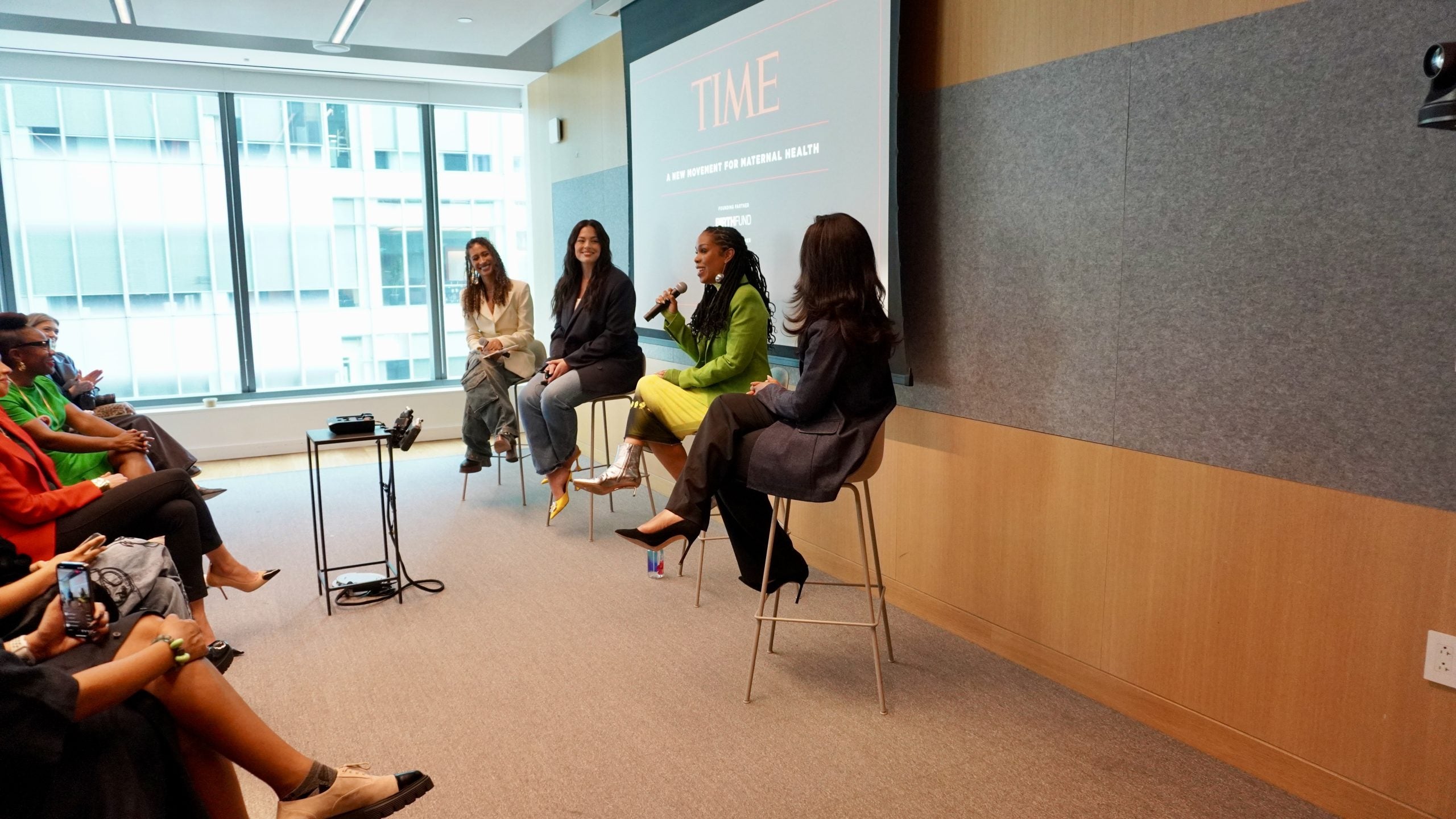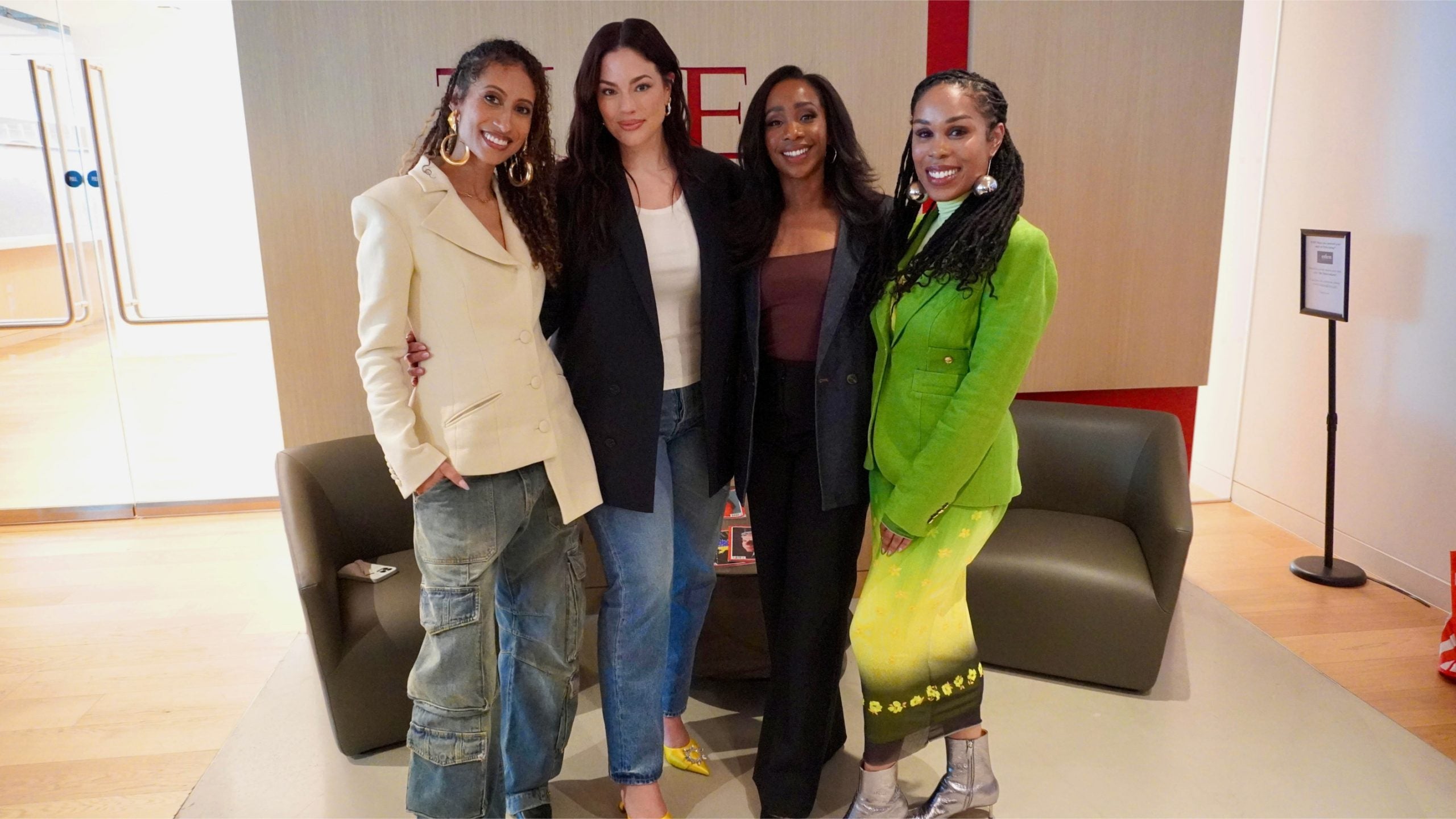
As the maternal health crisis in the United States has been in the spotlight, including through Black Maternal Health Week (April 11-17), many women are looking to do their birthing experience differently. They are leaving behind cold deliveries in the hospital for opportunities to have their babies at birthing centers or at home. They’re looking for someone to advocate for them as opposed to doctors who downplay their feelings and discomfort. They are seeking the calm, joyful experience they know is possible.
To support families in having that, author, editor, journalist, and TV personality Elaine Welteroth founded an organization that would financially back them. With the help of a who’s who list of Founding Family Funders, the recently founded birthFUND is already at work to make a change. That includes creating a pool of vetted midwifery care providers, connecting them with moms-to-be and their broods, and supplying those families with need-based grants to cover the costs of “holistic perinatal care” and birth services.
“We are all sick and tired of hearing these sad stories,” Welteroth said at a birthFUND event with TIME CMO Sadé Muhammad titled “A New Movement for Maternal Health” that rounded out Black Maternal Health Week. It amplified the stories of a few Founding Family Funders, including CNN’s Abby Phillip and model Ashley Graham, with insights from birthFUND advisor and Legacy: A Black Physician Reckons With Racism in Medicine author Uche Blackstock, M.D. “And so we’re not here today to fearmonger or regurgitate the sad stories. We know the statistics, we know that they’re grim, and we know that the world is full of enough bad news. What we’re here to do is really change the stats into a call to action. We need to stop being shocked and we need to figure out how we can lift up the solutions that are going to change this. And one of those solutions is midwifery.”

Midwifery is the default form of birth care in other financially wealthy countries. It is also one of the oldest professions out there. But as noted during the event, it’s shrouded in miseducation here in the U.S. and has been since physicians, male physicians at that, started to be touted as the preferred people to deliver babies.
“There was an act called the Sheppard-Towner Act in 1921 that essentially medicalized the birthing process. And it was part of a campaign that essentially associated midwifery with poor outcomes, poor maternal outcomes, even though at that time there was no evidence for that,” shared Blackstock during the panel conversation. “And so that medicalized the birthing process so that obstetrics and gynecologists and, at the time, mostly white men would be the ones that were caring for patients. And it made the whole process of becoming midwives even more difficult.”
As a result, delivering in hospitals has been viewed as the safest bet while attempting to deliver at home with the aid of a midwife has been vilified – to this day.
“Right before I had my baby, one of my doctor friends was like, ‘Where are you giving birth?’ And I was like, actually, I’m giving birth at home. And then she said, ‘That’s not very safe.’ And I just said, okay. Okay, thank you,” said Phillips. She would later tell the obstetrician she was seeing until 32 weeks that she was going to give birth at home and was given a similar response.
“She said, I have to tell you this, but it’s a lot less safe, and the risks are going to be a lot higher for you. And there are a lot of things that can go wrong. And when you’re not in a hospital, it’s much more likely that the outcomes will be bad for you.’ And so as a woman and as a mom, that’s really scary,” Phillips said.
She added, “But the process of learning about midwifery is a process of trying to understand the intended outcome of childbirth, what our bodies can do, and what the purpose of medical care is. And the conclusion I came to is that it’s not that all births should be conducted by midwives, but rather that medical care is there to care for people who need medical care. And inherently, childbirth does not need to be medicalized for all women. It just doesn’t.”
Nevertheless, here in the U.S., in 2022, 32.1 percent of live births were Cesarean, a surgery that can be upsetting to have and difficult to recover from for new moms. And that is part of why normalizing, once again, midwifery care is so important to birthFUND.
“I didn’t know that I had options. I thought my option only was to either get the epidural or not,” said Graham, who utilized the services of renowned doula Latham Thomas after a less-than-stellar experience with one of the best doctors, or so she was told, in NYC. She had only seen women like her mother deliver in the hospital and thought that delivery meant all of the scary things we see on TV and in movies. But the delivery of her first son (she has three, including a set of twins) was completely different in the best way. Her midwife team empowered her.
“Birth isn’t that fun. It’s not fun to push a baby out. I mean, maybe there’s somebody who’s going to say it, but it is hard. It’s hardcore. But to create an atmosphere around you and to have that access to be able to do that, that is what made it calm in that room for me,” Graham added. “That’s what made the atmosphere inviting. So that birth wasn’t days on end, and I didn’t have to beg for drugs. I didn’t have to get a c-section because we created, me and my team, an atmosphere that was calming, inviting, and welcoming to me and the baby.”
One of the most compelling insights shared about midwives is that the level of care they supply is much deeper than checking on the baby’s health. They offer a “wraparound care” that the overburdened medical system cannot provide. They can teach you how the body and mind are connected and ways to curb stress, and they care for both mother and child. They are also present after you give birth, return the next day, and are consistent in the lives of the women they help for weeks as they grow accustomed to motherhood. At a time when Welteroth says that close to 50 percent of mothers in this country have labeled their births as traumatic, midwives are essential.
“We had complications with our home birth, but I want to be clear: I didn’t walk out with birth trauma,” said Welteroth. Both Graham and Phillips dealt with hemorrhages after their home births, but the situation was handled without medical intervention by their midwife team, often, without them realizing it was happening.
“I didn’t know that I was having a complication when I was having it because the midwives were caring for my mind and my spirit and my heart just as much as they were caring for my body,” Welteroth added. “So they took care of the emergency that I was in without even alerting me to the emergency. I found out the next day.”

So the birthFUND Founding Family Funders, including the panelists as well as Serena Williams, Savannah James, Ayesha Curry and more, and corporate partner and personal finance and banking company SoFi, are funding the cost of midwifery care for families. They’re also meeting these families on Zoom and building a relationship with them, hoping to offer them the best possible outcomes as they prepare to give birth. And everyday people can do the same. Every dollar, every effort, counts.
“This is a movement that truly meets everybody where you’re at,” Welteroth said. There is a “donate” space on the birthFund site. “I want to encourage you all to invest with us, be it an Instagram fundraiser or telling your friends. I also want to encourage you all to get your work colleagues, get your church community together, and make a commitment to sponsor a family. How can we get together and create these little microcosms of what I’ve done with these amazing front-facing influential women? Because we’re all influential within our communities.”
“You all can start those coalitions yourself,” she added. “So if you’re interested in getting involved in your own way, in your own custom way, you have a superpower to offer, your company has something to offer here, contact us. Because we are building a coalition and it’s going to require all of us. We can’t fix this crisis on our own.”
To learn more about the work of birthFund and how you can be a part of it, check out their website.







